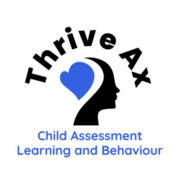How NCEA Compares Internationally
Staff Reporter
05 August 2025, 4:50 AM
 New Grading, Global Benchmarks, and Big Changes.
New Grading, Global Benchmarks, and Big Changes.If you’ve got a teen in high school or one starting soon, you’ve likely heard murmurs about the big shake-up coming to NCEA.
The familiar system that’s shaped school leavers’ results since 2002 is on its way out, with a more globally aligned approach planned to phase in from 2026.
So, how does our current system stack up internationally?
NCEA has long been praised for flexibility.
Students can tailor subject choices to suit their interests or career paths. But that same flexibility has led to patchy results.
One school’s science credits might not match another’s, and many students have left with a certificate but weak maths or literacy skills.
That’s been a concern for parents, employers, and even universities, both here and overseas.
While NCEA is accepted by top institutions like Oxford and Harvard, those applying with A-Levels or the International Baccalaureate are often on more familiar ground.
These qualifications are better known internationally and sometimes seen as more academically rigorous.
New Zealand once ranked among the world’s top-performing education systems.
In the early 2000s, our 15-year-olds were ranked 3rd in maths and 4th in reading.
But by the 2018 PISA tests, our maths ranking had slipped to 27th, with reading and science results holding steady but still trending down.
To address these issues, the government is planning a full qualification overhaul.
From 2028, Year 11 students will no longer sit NCEA Level 1.
Instead, they’ll focus on core skills in literacy and numeracy through a new standalone Foundational Skills Award.
In the following years, two new certificates will replace NCEA Levels 2 and 3: the New Zealand Certificate of Education (NZCE) in Year 12 and the New Zealand Advanced Certificate of Education (NZACE) in Year 13.
These will be subject-based qualifications, assessed using a consistent national curriculum.
Students will no longer receive “Achieved,” “Merit,” or “Excellence” grades.
Instead, their work will be marked out of 100 and reported using letter grades from A to E—making results easier for parents, employers, and universities to interpret.
Year 11 students will still be required to take English and maths, and students in Years 12 and 13 must study five subjects, with at least four passes needed to gain their certificate.
The full rollout is expected to take place between 2026 and 2030, with public consultation open until later this year.
The aim is a simpler, stronger, and more consistent system.
One that supports every learner while standing up to global scrutiny.
Know something local worth sharing?
Send it to [email protected] — we’ll help spread the word.


